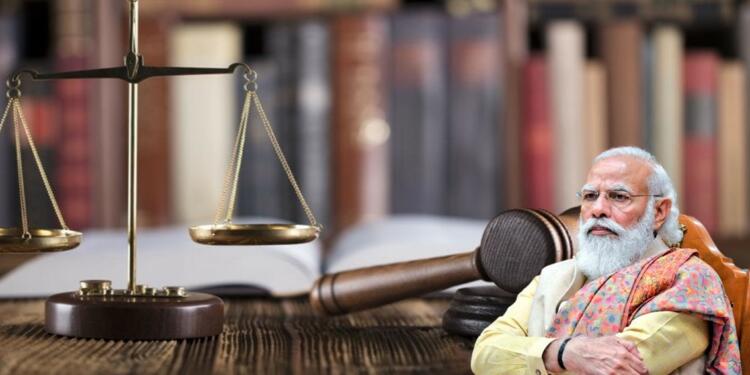Laws are the governing principles that have been developed over the years and generated societal conscience. It legally binds people to behave in a certain manner. It reflects the moral development of a society. Further, in a democratic setup, the decision to make laws according to the moral conscience of citizens is entrusted to the representatives of the people who are elected through the Universal Adult Franchise. It becomes important for lawmakers to make, repeal or amend laws in consonance with the overall consensus of people who are the ultimate authority of democracy.
Proselytization by weaponizing Constitutional mandate
Article 25 of the Indian constitution provides the freedom of propagation of religion to ‘all persons’. This means any religious community can persuade others to follow their religion. The ‘persuasion’ & the ‘forceful conversion’, the two ways of proselytization of religion is followed by the religious missionaries to convert people. And, the history of religious propagation suggests that there are very few religions, of course not Hinduism, that use their expansionist & predatory nature to convert people.
The predatory religious communities use the provisions of Article 25 to convert Hindus. In a way, the Constitutional provisions have been weaponized by the missionaries to ‘propagate’ their religions. Although some of the states have made laws against the forceful conversion but the express provisions in the Constitution against the practice will only create some deterrent effect on forced proselytization. Further, the government should urgently amend the fundamental rights to ensure constitutional safeguards for Hindus.
Minority status of Hindus in States
The National Commission For Minorities Act, 1992 governs the rights of minorities provided under the constitution. Further Section 2(c) of the act states that ‘minority’, for the purpose of this act, means a community notified as such by the Central Government. And, the government’s notifications related to minority status are mainly based on numerical counts on a national basis. Despite the fact that around 9 states are Ladakh (12.11%), Mizoram (2.75%), Lakshadweep (2.77%), Jammu & Kashmir (28.8% – Kashmir division – 3.59%), Nagaland (8.75%), Meghalaya (11.53%), Arunachal Pradesh (29.04%), Punjab (38.49%) and Manipur (41.39%), Hindus are in minority and they don’t have any constitutional or statutory minority safeguards.
So using the power provided in section 2(c) of the National Commission for Minorities Act, 1991, the central government should provide Hindus with minority status in respective States and complete its Constitutional mandate provided under Articles 29 & 30.
Read More: No more legal immunity for the Waqf Board!
Personal laws can not be allowed to override the Constitutional law
Over the years religious appeasement has not let the modern constitutional principles spread in some of the communities. Due to the promotion of personal laws of religious communities, the medieval mindsets are engulfing its people. The rigidity and extremist ideas further become the source of conflict in society. So it’s become very important to bring every religious community to modern principles of law. Moreover, every patronage to religion should be withdrawn by the state and the nation should treat every religion equally.
Following the aforementioned principle of secularism, the central government should repeal statutory laws like Waqf Act 1995 which effectively is running a government inside the government. Some of the provisions of the act are:-
- Sec 28 & sec 29 compel the State Machinery and the DM to follow the orders of the Waqf Board.
- Under Section 36 & Section 40 of the Waqf Act, 1995, the Waqf Board can declare any property, whether private, social, or any trust, as its property.
- Section 40(1) states that if the property of an individual is declared as Waqf property, then that individual does not even have a right to get a copy of that order, Moreover, if he does not appeal against him within 3 years, then that order will be final.
- Section 85 and 89 make it mandatory for a victim to ask Waqf Tribunal for remedy. If an individual wants to file a case in Civil Court, then Waqf Board has to be informed 2 months before the filing of a formal appeal.
- Section 101 declares Waqf Board members as public servants. There is no such privilege accorded to people working for any other religious institution.
The statutory laws like this create the different governing principles for different communities and create a sense of exclusionist mindset which ultimately results in the development of extremist ideas. Moreover, the law violates the principles of equality to other religious communities as no other religion has been provided with such separate and over-constitutional provision under the ‘secular state’.
Read More: Are Waqf Boards even legal? An answer is expected soon
Leave the special safeguard the Indian state even ‘loot’ the money of Hindu Mandirs and spend it on their ‘secular’ subjects. In Tamil Nadu, Hindu Religious & Charitable Endowments Department has been created to control temples in the state. According to the department, around 45178 temples are controlled by the states. Moreover, 478283.53 acres of land, 22600 buildings, and 33665 sites owned by temples are under the control of the state.
In a single state, about 45 thousand temples are under the government’s control and the calculations of property owned by the temples can be imagined only. All these go to the state and their ‘secular’ subjects.
So the government should bring an overhaul amendment in the statutory and constitutional law to provide the safeguards to Hindus and end the years of injustices & apathy of the community. And, laws that are being used by predatory religions to spread hatred and conflict should be repealed.
























